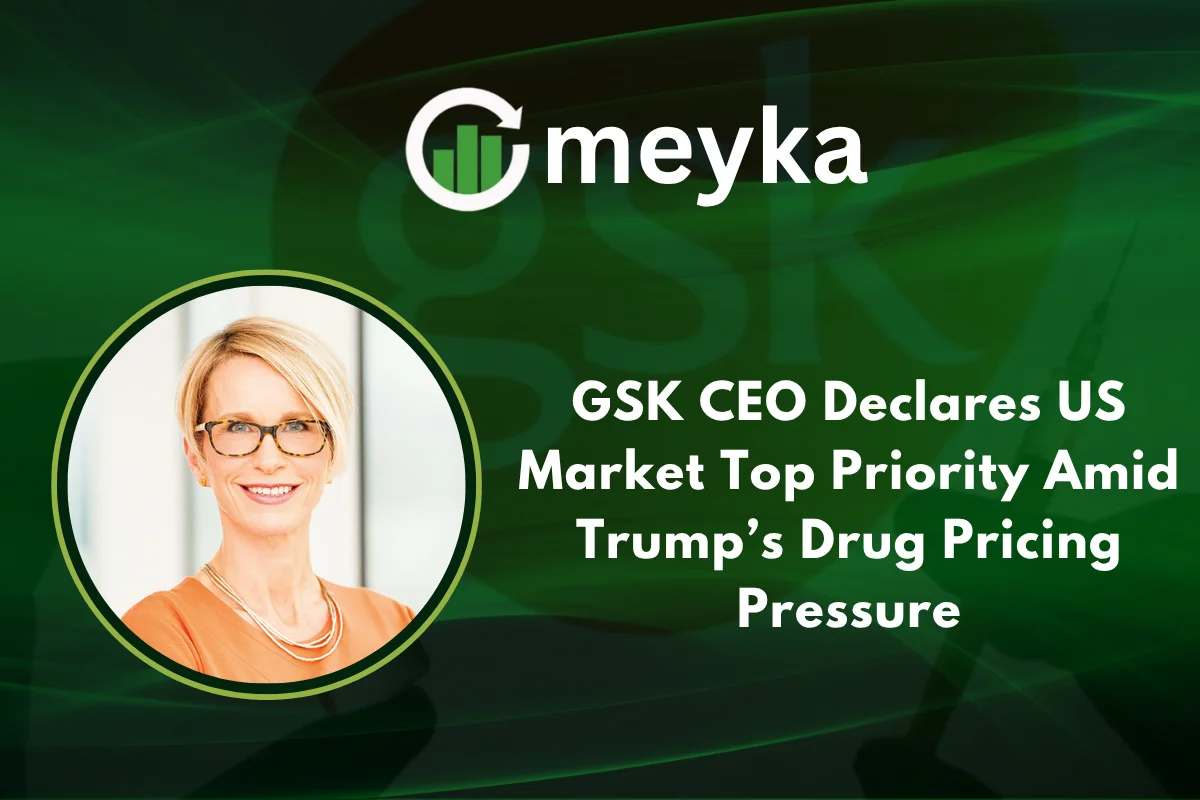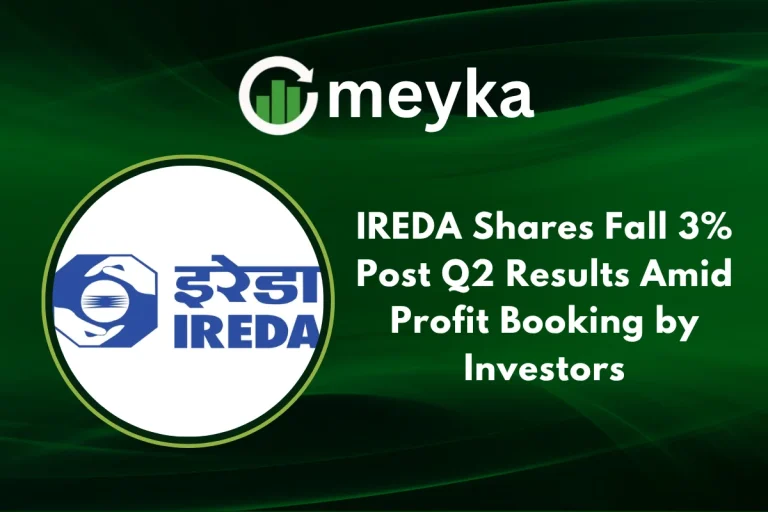GSK CEO Declares US Market Top Priority Amid Trump’s Drug Pricing Pressure
The pharmaceutical landscape is undergoing a critical transformation as GSK (GlaxoSmithKline) places the United States market at the center of its growth strategy. With political and regulatory challenges intensifying, especially under the shadow of former President Donald Trump’s long-standing pressure on lowering drug pricing, GSK’s leadership has taken a clear stance. By prioritizing the U.S. market, the company signals both its determination to capture long-term opportunities and its readiness to navigate political headwinds.
Why the U.S. Market Matters for GSK
The U.S. is the world’s largest pharmaceutical market, accounting for nearly 40% of global drug sales according to the IQVIA Institute. For a company like GSK, which competes with giants such as Pfizer, Johnson & Johnson, and Merck, ensuring dominance in the American market is not optional; it is essential.
GSK CEO Emma Walmsley has repeatedly emphasized the importance of the United States, highlighting its role in driving innovation, partnerships, and revenue growth. Despite challenges, including strict regulatory reviews and political scrutiny, the U.S. remains the hub for biotech innovation and a critical testing ground for new medicines.
Trump’s Drug Pricing Pressure and Its Ripple Effects
Former U.S. President Donald Trump made drug pricing reform a cornerstone of his health agenda. His administration proposed policies that aimed to reduce patient costs, increase transparency, and tie drug prices in the U.S. more closely to those abroad.
For GSK, these proposals created both opportunities and risks. On one hand, pressure to lower prices threatens profit margins. On the other hand, reforms that increase patient access could expand volumes, especially for vaccines and specialty drugs. The company has worked to position itself not just as a seller of treatments but as a partner in improving healthcare affordability.
GSK’s focus on vaccines, oncology, and HIV treatments positions it well to align with U.S. policy trends that prioritize high-impact medicines while scrutinizing the costs of widely used drugs.
GSK’s Strategic Shifts in the U.S.
Vaccine Leadership
GSK is a global leader in vaccines, a division that has proven vital during the COVID-19 pandemic. The company has invested heavily in U.S.-based research partnerships and distribution networks to ensure access to critical vaccines like Shingrix, which has become a blockbuster.
Focus on Specialty Medicines
Specialty medicines, especially in oncology and immunology, are areas of strong demand in the U.S. GSK has expanded its pipeline, acquiring biotech firms and strengthening collaborations to speed up clinical development.
Digital and AI Investments
The company has also invested in AI-driven drug discovery, recognizing the importance of technology in maintaining competitiveness. AI stocks and AI-driven healthcare research are booming in the U.S., and GSK is aligning its strategy with this trend to remain a top innovator.
Market Access and Policy Engagement
GSK has ramped up its lobbying efforts and industry collaborations in Washington to ensure that upcoming drug pricing policies balance affordability with incentives for innovation
Impact on GSK Stock Performance
The stock market has responded cautiously to these shifts. On the one hand, the U.S. focus strengthens GSK’s long-term growth prospects. On the other hand, investors remain wary of political volatility around drug pricing.
Stock research firms highlight GSK’s steady dividend payouts as a strength, making it attractive to long-term investors seeking stability. However, concerns about competition, generic erosion, and ongoing restructuring have kept valuations moderate compared to peers like Pfizer and Novartis.
Analysts suggest that GSK’s U.S. strategy could unlock significant shareholder value if successfully executed. Growth in the vaccines segment, combined with advancements in oncology, could offset potential pricing pressures.
Global Competition in a Changing Market
While GSK prioritizes the U.S., it faces fierce competition from established and emerging players. Pfizer’s dominance in COVID-19 vaccines and oncology, Johnson & Johnson’s diversification, and Merck’s leadership in cancer treatments challenge GSK’s ability to win market share.
At the same time, biotech start-ups in the U.S., fueled by venture capital and advances in AI-driven drug discovery, are reshaping the pharmaceutical ecosystem. For GSK, staying competitive requires not just scale but agility. By focusing on targeted therapies and innovative vaccines, the company is carving out niches where it can lead.
Challenges Ahead
Despite its bold stance, GSK must overcome several challenges:
- Regulatory Scrutiny: The FDA continues to raise the bar for drug approvals, demanding robust clinical evidence.
- Pricing Pressure: Both political parties in the U.S. remain committed to tackling high drug costs.
- Investor Expectations: Shareholders expect not just stability but growth, especially in a market as lucrative as the U.S.
- Innovation Race: Competing with AI-powered biotech firms requires continuous investment and strategic alliances.
Outlook: Balancing Profitability and Policy
GSK’s U.S. strategy reflects the balancing act facing the entire pharmaceutical sector: delivering breakthrough medicines while responding to calls for affordability. The U.S. will remain the centerpiece of GSK’s global strategy, but success will depend on navigating political realities and staying ahead in innovation.
For investors, the company presents a long-term opportunity. GSK may not deliver the explosive growth of emerging AI stocks, but its commitment to vaccines and specialty medicines makes it a resilient player in the evolving healthcare landscape.
Conclusion
As GSK CEO Emma Walmsley doubles down on the U.S. market, the company stands at a pivotal moment. By aligning with American healthcare priorities while defending innovation against pricing pressure, GSK is shaping its future. For patients, investors, and policymakers, its strategy represents both hope and challenge.
The U.S. may be the most competitive pharmaceutical arena in the world, but for GSK, it is also the land of greatest opportunity.
FAQs
GSK is prioritizing the U.S. because it is the world’s largest pharmaceutical market, offering the biggest revenue and growth opportunities despite political and regulatory challenges.
Trump’s push for lower drug prices pressures GSK’s profit margins but also opens opportunities to expand patient access, particularly for vaccines and specialty medicines.
GSK stock remains attractive for long-term investors due to strong dividends and a focus on vaccines and oncology, though political risks and competition must be considered.
Disclaimer:
This content is made for learning only. It is not meant to give financial advice. Always check the facts yourself. Financial decisions need detailed research.






